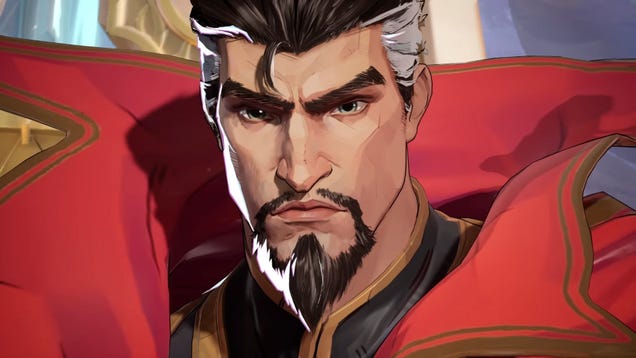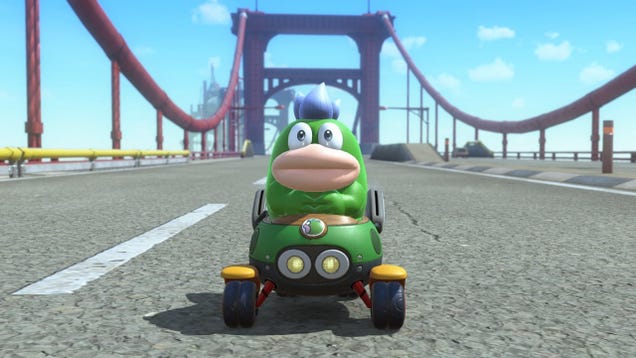






 Posted by msmash from Slashdot
Posted by msmash from Slashdot
From the troubling-signs department: Rice, the world's most consumed grain, will become increasingly toxic as the atmosphere heats and as carbon dioxide emissions rise, potentially putting billions of people at risk of cancers and other diseases, according to new research published this week in The Lancet. From a report: Eaten every day by billions of people and grown across the globe, rice is arguably the planet's most important staple crop, with half the world's population relying on it for the majority of its food needs, especially in developing countries.
But the way rice is grown -- mostly submerged in paddies -- and its highly porous texture mean it can absorb unusually high levels of arsenic, a potent carcinogenic toxin that is especially dangerous for babies. After growing rice in controlled fields for six years, researchers from Columbia University and international partners found that when both temperature and CO2 increased in line with climate projections, arsenic levels in rice grains rose significantly. "When we put both of them together, then wow, that was really something we were not expecting," said Lewis Ziska, a plant physiologist at Columbia University who led the study. "You're looking at a crop staple that's consumed by a billion people every day, and any effect on toxicity is going to have a pretty damn large effect."
Inorganic arsenic exposure has been linked to cancers, heart disease, and neurological problems in infants. Disease risk rose across all seven top rice-consuming Asian countries analyzed. "This is one more reason to intervene -- to control people's exposure," said co-author Keeve Nachman of Johns Hopkins University. "The No. 1 thing we can do is everything in our power to slow climate change."







 Posted by AzT from TFW2005
Posted by AzT from TFW2005

Transformers #22 and Void Rivals #21 are scheduled for July arrivals to your favorite local comic shop: ONE WILL STAND. ONE WILL RISE. There’s no going back, as the Autobots and Decepticons prepare to make their last stand. It’s all-out war between Agorria and Zertonia… can Darak thwart certain annihilation?! Discuss the details revealed so far with fellow readers on the 2005 boards! Transformers #22 Creator credits: (W) Daniel Warren Johnson, (A) Jorge Corona, Mike Spicer, (CA) Daniel Warren Johnson, Mike Spicer, (A/CA) Jorge Corona, Mike Spicer, (CA) David Nakayama, (CA) Manabu Yashiro, featured, (CA) Pye Parr Void Rivals #21 Creator credits: (W) Robert Kirkman,
» Continue Reading.
The post
Skybound’s Transformers Comics Solicitations: July 2025 appeared first on
Transformer World 2005 - TFW2005.COM.







 Posted by msmash from Slashdot
Posted by msmash from Slashdot
From the closer-look department: Nature has published an analysis of the 21st century's most-cited scientific papers, revealing a surprising pattern: breakthrough discoveries like mRNA vaccines, CRISPR, and gravitational waves don't make the list. Instead, a 2016 Microsoft paper on "deep residual learning" networks claims the top spot, with citations ranging from 103,756 to 254,074 depending on the database.
The list overwhelmingly features methodology papers and software tools rather than groundbreaking discoveries. AI research dominates with four papers in the top ten, including Google's 2017 "Attention is all you need" paper that underpins modern language models.
The second-most-cited paper -- a 2001 guide for analyzing gene expression data -- was explicitly created to be cited after journal reviewers rejected references to a technical manual. As sociologist Misha Teplitskiy noted, "Scientists say they value methods, theory and empirical discoveries, but in practice the methods get cited more."







 Posted by msmash from Slashdot
Posted by msmash from Slashdot
From the closer-look department: New research suggests Oda Ujiharu, long derided as feudal Japan's most ineffective military leader, may have been mischaracterized. The Sengoku-period daimyo, who ruled from Oda Castle in present-day Ibaraki Prefecture, lost his fortress an unprecedented nine times to rival clans -- but recaptured it eight times, often with inferior forces.
"His refusal to accept defeat and his iron will to get up and keep fighting is why many historians reject the 'weakest samurai warlord' nickname and instead refer to him as 'The Phoenix,'" notes the research published in Tokyo Weekender. While Ujiharu's battlefield decisions appear strategically baffling -- repeatedly abandoning castle defenses for open combat -- some researchers propose these actions were deliberately taken to protect peasant settlements from the devastation of prolonged sieges. From the article: Ujiharu's blind charges may actually have had a noble purpose. Japanese battles involving castles almost always turned into sieges, and those always ended the same way: with the nearby fields and peasant settlements being either destroyed to try and draw the lord out of the castle or looted to feed the occupying army. Some researchers believe that Ujiharu was trying to avoid a siege to save his subjects. Despite numerous military setbacks, Ujiharu maintained remarkable loyalty from his subordinates. Historical records indicate that after his initial campaigns, attempts to bribe or threaten his retainers to defect consistently failed.
The daimyo demonstrated considerable diplomatic acumen, forming multiple alliances with former enemies throughout his career. His downfall came only after hesitating to pledge allegiance to Toyotomi Hideyoshi during Japan's unification, resulting in his lands being confiscated.







 Posted by msmash from Slashdot
Posted by msmash from Slashdot
From the extent-of-damage department: Sage has retracted 678 more papers from the Journal of Intelligent and Fuzzy Systems (JIFS), concluding an investigation that has now purged 1,561 articles -- the most ever removed from a single journal. The publisher, which acquired JIFS from IOS Press in November 2023, began investigating the journal in early 2024 after discovering "indicators that raised concerns about the authenticity of the research and the peer review process."
This final batch follows 467 articles retracted in August and another 416 in January. Problems in the retracted papers included citation manipulation, "tortured phrases," unauthorized third-party involvement in submissions, and evidence suggesting collusion between authors and reviewers. Most authors were from India and China, with some from Pakistan, Turkey, Iran, and Iraq. Cengiz Kahraman of Istanbul Technical University, who authored 20 of the retracted papers, disputed the decision, telling Retraction Watch that Sage acted "without any reason and evidence." The journal has now resumed publishing.





 A new Darth Maul animated TV show! A new movie starring Ryan Gosling! A Turgle action figure! We’ve rounded up all that news and more cool reveals from Star Wars Celebration Japan 2025.
A new Darth Maul animated TV show! A new movie starring Ryan Gosling! A Turgle action figure! We’ve rounded up all that news and more cool reveals from Star Wars Celebration Japan 2025.
 Four months in, Marvel Rivals players keep finding ways to make Doctor Strange’s portal ability more broken. The sorcerer can place two portals anywhere on the map during the match, opening a magical pathway between them for your team to use, but players have used and abused it to trick enemies into walking off the map
Four months in, Marvel Rivals players keep finding ways to make Doctor Strange’s portal ability more broken. The sorcerer can place two portals anywhere on the map during the match, opening a magical pathway between them for your team to use, but players have used and abused it to trick enemies into walking off the map

 It’s been about three years since we got any real update on Kingdom Hearts IV, the next game in Disney and Square Enix’s long-running series of crossover RPGs. As a result, when Disney acknowledges the series, even in small ways, it can feel significant, like a reminder that the game is still coming and in active…
It’s been about three years since we got any real update on Kingdom Hearts IV, the next game in Disney and Square Enix’s long-running series of crossover RPGs. As a result, when Disney acknowledges the series, even in small ways, it can feel significant, like a reminder that the game is still coming and in active…

 Sinners is a masterpiece. Ryan Coogler makes a movie that features vampires, but it is not just a horror movie. It is more.
Sinners is a masterpiece. Ryan Coogler makes a movie that features vampires, but it is not just a horror movie. It is more.
 I love being able to come to you with something completely and utterly gorgeous, uplifting, and entertaining. The Beekeeper’s Picnic, a Sherlock Holmes point-and-click adventure, gives us a few hours in the post-retirement life of the great detective, and the opportunity to shape his relationship with an elderly…
I love being able to come to you with something completely and utterly gorgeous, uplifting, and entertaining. The Beekeeper’s Picnic, a Sherlock Holmes point-and-click adventure, gives us a few hours in the post-retirement life of the great detective, and the opportunity to shape his relationship with an elderly…
 Nintendo has officially announced the date for U.S. pre-orders of the Switch 2, after a last-minute delay following the tariff turmoil of the last few weeks. While most of the rest of the world has been adding the console to their shopping baskets, North America has been unable to do so after Nintendo hit pause in the…
Nintendo has officially announced the date for U.S. pre-orders of the Switch 2, after a last-minute delay following the tariff turmoil of the last few weeks. While most of the rest of the world has been adding the console to their shopping baskets, North America has been unable to do so after Nintendo hit pause in the…

 Everspace 2's upcoming paid expansion is set to launch in May. But it will cost a bit less than originally announced, and the devs cite the ongoing economic crisis in the world as the reason for the discount.
Everspace 2's upcoming paid expansion is set to launch in May. But it will cost a bit less than originally announced, and the devs cite the ongoing economic crisis in the world as the reason for the discount.
 Mario Kart World was the very first game we ever saw running on a Switch 2. And from that moment, we here at Kotaku have been impressed by the open-world kart racer’s visuals.
Mario Kart World was the very first game we ever saw running on a Switch 2. And from that moment, we here at Kotaku have been impressed by the open-world kart racer’s visuals.